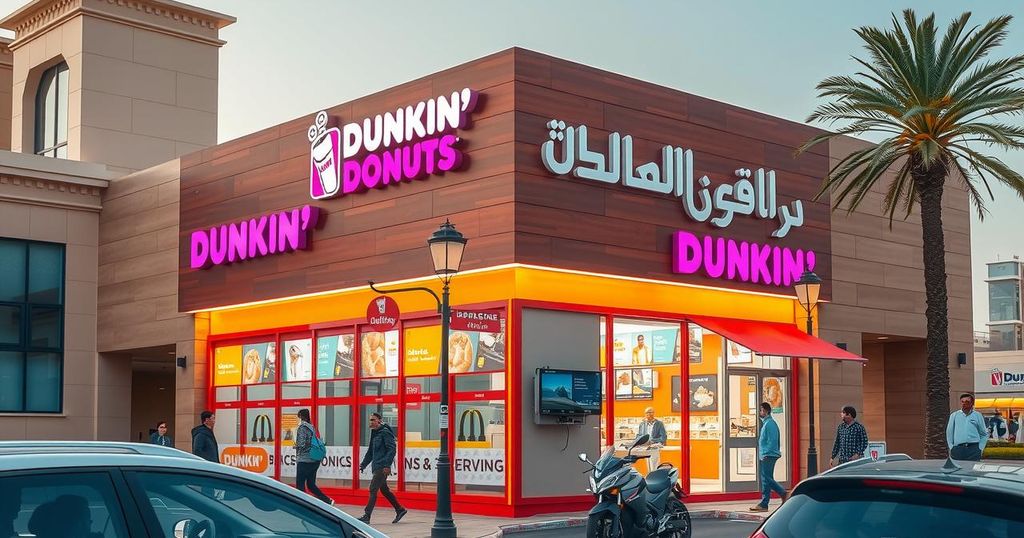Saudi Arabia’s embrace of American culture, notably through brands like Dunkin’ Donuts, reveals a deeper connection driven by historical alliances and Vision 2030 economic plans. Fast food chains and American brands thrive despite the Kingdom’s conservative image, with significant influence on daily life. This story is complemented by anecdotal evidence from residents about their experiences with U.S. culture.
Saudi Arabia, often perceived as a bastion of religious conservatism, is revealing a surprising fondness for American culture and brands, particularly those related to food and entertainment. Fast food chains such as Dunkin’ Donuts, which boasts more than 600 locations across the Kingdom, signify a notable American influence among its 35 million residents. This trend is fueled by a strategic alliance rooted in oil and security, remaining resilient despite historical tensions.
Anecdotes, like that of Fahd, a mechanical engineer who spent nine years living in Tennessee, illustrate this cultural crossover. “When I came here, thank God, the same café and same order were here too,” he remarked about finding his cherished Dunkin’ Donuts after returning to Riyadh. This mirrors a broader pattern where a Western corporate presence increasingly saturates everyday life in Saudi Arabia.
In Riyadh, the streets teem with American vehicles, and restaurants such as Buffalo Wild Wings, Chuck E. Cheese, and Starbucks have become commonplace. The American cultural imprint is strong despite a backdrop of traditional values, from the holiest sites of Islam to the millions of pilgrims that visit each year.
Saudi Arabia’s relationship with the United States took root during World War II, with King Abdulaziz and President Franklin Roosevelt establishing a partnership aboard a US cruiser. This alliance paved the way for military protection and access to vast oil reserves in exchange. The ties, while sometimes tested by international incidents, have endured, demonstrating resilience amid global challenges, including the boycott of US products correlated with the Israel-Hamas conflict.
Young Saudis, such as 28-year-old Dalal Abdulaziz, echo this sentiment, noting the ubiquitous presence of American cuisine: “You’ll find American restaurants in every neighborhood here. We eat it weekly, almost like Saudi food.” Khaled Salman Al-Dosari, a student, noted that it is rare to walk any street in the Kingdom without encountering an American brand.
The Saudi Vision 2030 initiative, crafted to diversify the echo of oil revenues, has further fueled American investment and cultural importation. Entertainment options, previously limited, are expanding with events like MMA fights and professional wrestling making their mark in Saudi towns. Andrew Leber, a political science expert, remarked, “Many Americans would be surprised at the extent to which American brands are all over Saudi Arabia.”
As comparisons of Riyadh to Texas emerge due to climate similarities, it is evident that American culture resonates deeply with many Saudis, altering lifestyles in ways that would astonish outside observers. For American expatriates in the Kingdom, this emergence of familiar brands brings a sense of comfort and connection. Joshua Dunning, a business developer, stated, “It’s always a nice reminder, seeing those places and products here in Saudi.”
The unexpected affinity for American culture within Saudi Arabia underscores a complex relationship between the two nations, expanded further by economic diversification efforts such as Vision 2030. Despite a conservative backdrop, fast food chains and American brands are ingrained in daily life, signifying a cultural integration that often defies societal stereotypes. Both Saudis and Americans find common ground in shared interests that reflect an evolving society.
Original Source: www.malaymail.com






